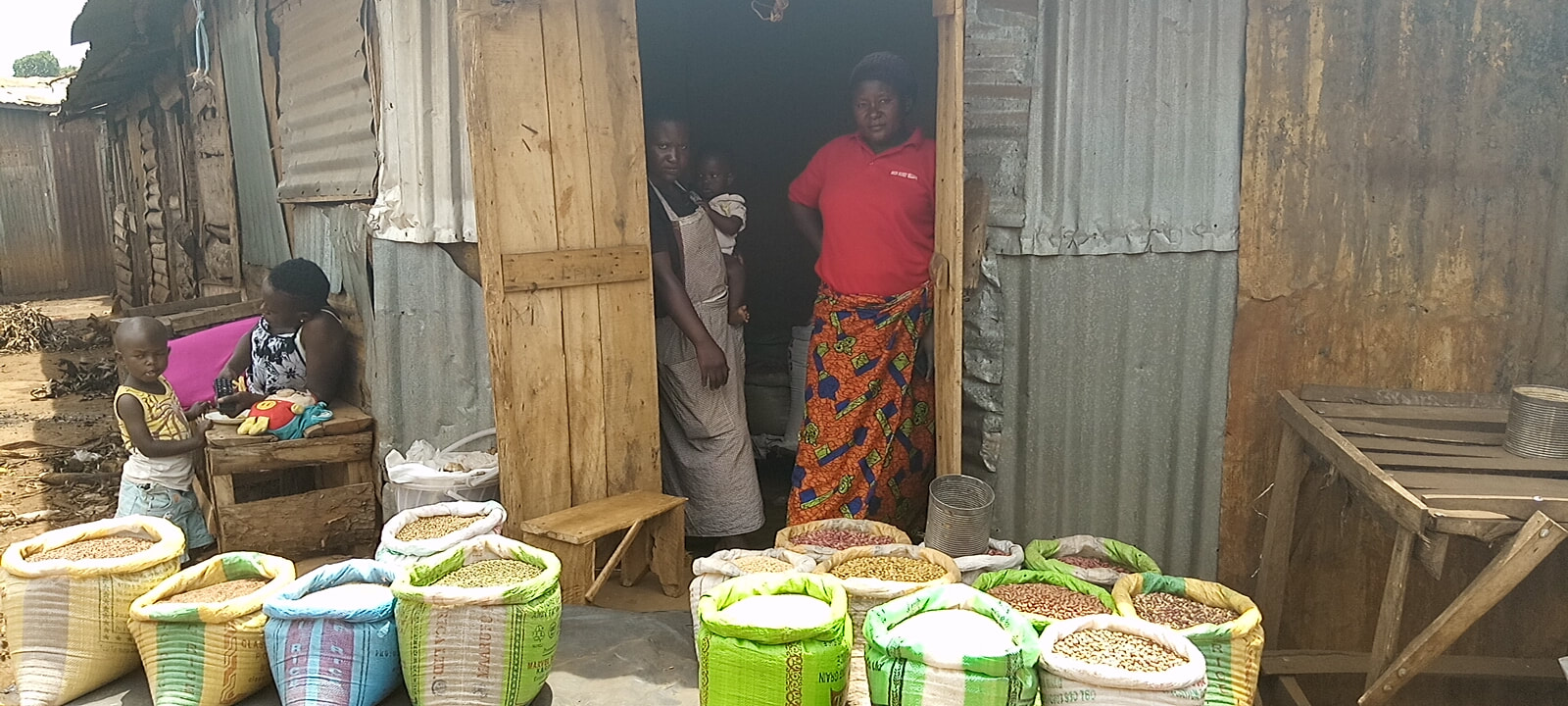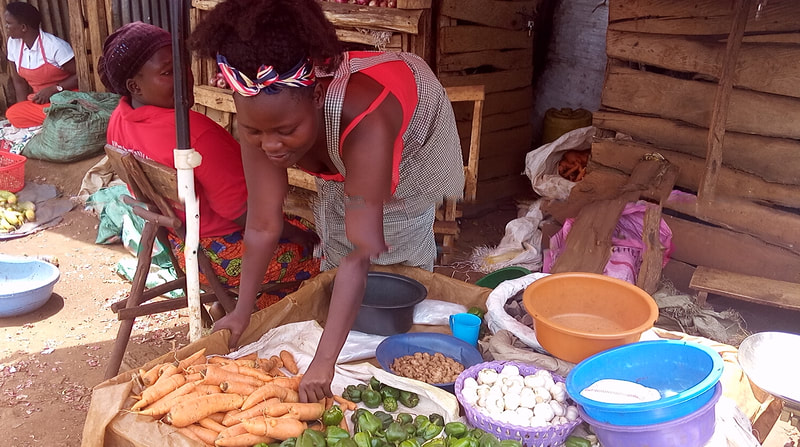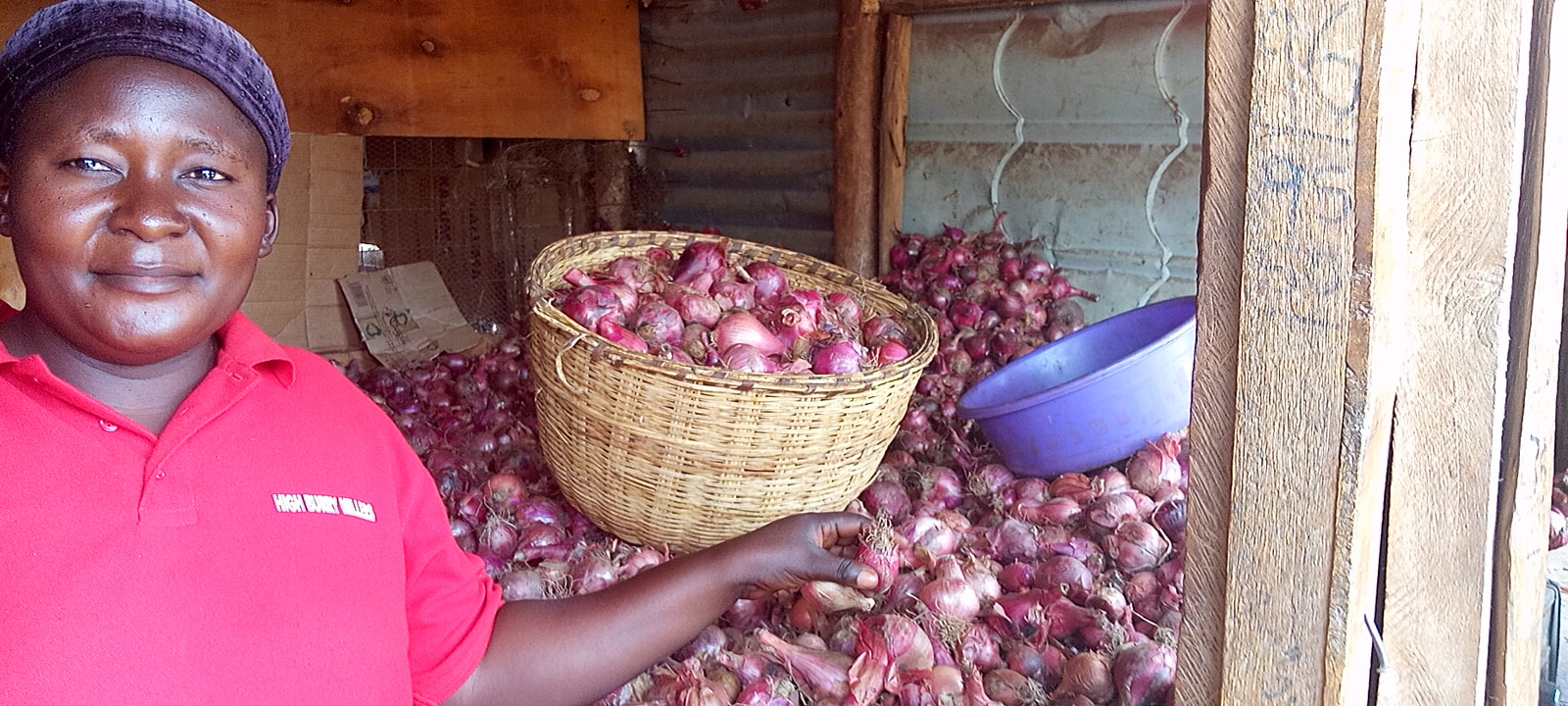Bible-Based Community

THE AFRICAN "SCATTERED CHURCH'S" WORK
As congregants leave church, they go from being the gathered to the scattered church. Going about their daily life in their homes, community and workplaces. In Africa, the most of the poor are entrepreneurs just to survive. Churches need individuals and families who are stable, have adequate income to feed, shelter and protect their family. Most families work creating their on ways of making money outside of subsistence farming. We are created by God to work...but entrepreneurship flourishes only when folks know what makes a successful venture.
AND
Through the work of the "scattered church", the gospel becomes Light to the community.
"For we are God’s handiwork, created in Christ Jesus to do good works, which God prepared in advance for us to do." Ephesians 2:10 NIV
...pray "that God may open a door for our message, so that we may proclaim the mystery of Christ, for which I am in chains. Be wise in the way you act toward outsiders; make the most of every opportunity. Let your conversation be always full of grace, seasoned with salt, so that you may know how to answer everyone." Colossians 4:3,5-6 NIV
How can we reach the poor for Christ who are struggling to feed their families?
In Africa, many have heard and responded to the Gospel message. But, for the poor, pressing life issues can make it easy to ignore or hard to focus on living out the Gospel in their lives.
The Hossana Bible-based Community Development Model shifts the message of the Gospel to existing entrepreneurs who need a hand up and who are capable of growing their business, hiring others, and sharing the Gospel. This model is not in place of the gathered local church but in support of the scattered church.
As church members empower and uplift, they build strong, high-trust relationships that allows them to share their Hope in Christ, because people listen and take what we have to say seriously.
As congregants leave church, they go from being the gathered to the scattered church. Going about their daily life in their homes, community and workplaces. In Africa, the most of the poor are entrepreneurs just to survive. Churches need individuals and families who are stable, have adequate income to feed, shelter and protect their family. Most families work creating their on ways of making money outside of subsistence farming. We are created by God to work...but entrepreneurship flourishes only when folks know what makes a successful venture.
AND
Through the work of the "scattered church", the gospel becomes Light to the community.
"For we are God’s handiwork, created in Christ Jesus to do good works, which God prepared in advance for us to do." Ephesians 2:10 NIV
...pray "that God may open a door for our message, so that we may proclaim the mystery of Christ, for which I am in chains. Be wise in the way you act toward outsiders; make the most of every opportunity. Let your conversation be always full of grace, seasoned with salt, so that you may know how to answer everyone." Colossians 4:3,5-6 NIV
How can we reach the poor for Christ who are struggling to feed their families?
In Africa, many have heard and responded to the Gospel message. But, for the poor, pressing life issues can make it easy to ignore or hard to focus on living out the Gospel in their lives.
The Hossana Bible-based Community Development Model shifts the message of the Gospel to existing entrepreneurs who need a hand up and who are capable of growing their business, hiring others, and sharing the Gospel. This model is not in place of the gathered local church but in support of the scattered church.
As church members empower and uplift, they build strong, high-trust relationships that allows them to share their Hope in Christ, because people listen and take what we have to say seriously.
Hossana Bible-Based Community Development Model
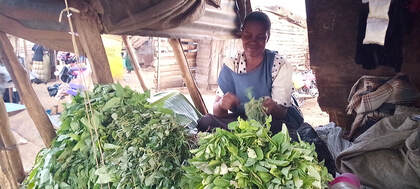
The Need: To connect the Gospel for Africans who live in poverty and by necessity are very entrepreneurial. Ugandans by necessity entrepreneurial: birth rate is out stripping job creation, 40% live on less than 1.90 per day, and jobs are scarce. Each year 400,000 enter the job market to compete for 9,000 new jobs.
Our Purpose: To train existing entrepreneurs to see themselves as God sees them, so they can best steward what God has provided.
Our Target: the African poor and refugees.
Our Purpose: To train existing entrepreneurs to see themselves as God sees them, so they can best steward what God has provided.
Our Target: the African poor and refugees.
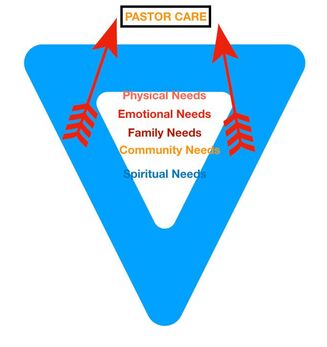
INVERTED PYRAMID - The pastor is asked to solve the congregations poverty issues.
When a community is living in poverty, the pastor of the local church is at the top of an inverted pyramid.
Pastor is overwhelmed by needs BUT must also provide for his own family
All the individual church members' pressing physical, emotional, and spiritual needs flow up to the pastor. These physical needs are often overwhelming, for example, a child needs immediate transport to a medical clinic or a family needs food today.
The congregation cannot support the pastor AND CANNOT be a resource to the community
The congregation cannot support the pastor through tithes. The pastor works full-time to provide for the family. The church members struggle to be light to the community.
When a community is living in poverty, the pastor of the local church is at the top of an inverted pyramid.
Pastor is overwhelmed by needs BUT must also provide for his own family
All the individual church members' pressing physical, emotional, and spiritual needs flow up to the pastor. These physical needs are often overwhelming, for example, a child needs immediate transport to a medical clinic or a family needs food today.
The congregation cannot support the pastor AND CANNOT be a resource to the community
The congregation cannot support the pastor through tithes. The pastor works full-time to provide for the family. The church members struggle to be light to the community.
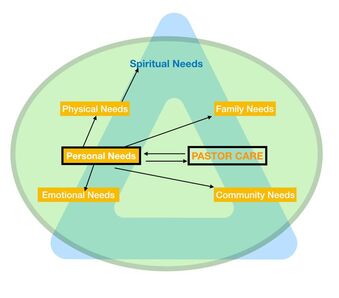
CHANGING THE CHURCH MEMBER AND PASTOR RELATIONSHIP
Successful pastors/shepherds in poor communities have:
- 1) a good foundation in God's Word and
- 2) an ability to help resource the needs of the congregation.
If each church member can provide their families needs, the pastor's burden is reduce.
AND if a church member can employ others in their daily work, they can give back to the church and to the community.
When the pastor can effectively manage his family's well-being, they are more likely to be trained in teaching and shepherding the flock, be self-sustaining, and more effective in discipling and maturing the church as well as see that the Kingdom is growing.
When a church member can afford to buy and study God's Word, she can share the Word with their family, neighbors as well as teach others.
Successful pastors/shepherds in poor communities have:
- 1) a good foundation in God's Word and
- 2) an ability to help resource the needs of the congregation.
If each church member can provide their families needs, the pastor's burden is reduce.
AND if a church member can employ others in their daily work, they can give back to the church and to the community.
When the pastor can effectively manage his family's well-being, they are more likely to be trained in teaching and shepherding the flock, be self-sustaining, and more effective in discipling and maturing the church as well as see that the Kingdom is growing.
When a church member can afford to buy and study God's Word, she can share the Word with their family, neighbors as well as teach others.
THE SCATTERED CHURCH'S WORK
Every time the church meets as a gathered church we come together in one place to worship Him and be edified through His Word, prayer to Him and recommitment to our calling in Him. When we scatter as a church and go our separate ways, we are to collectively still His church.
"For we are God’s handiwork, created in Christ Jesus to do good works, which God prepared in advance for us to do." Ephesians 2:10 NIV
As the scattered church, we are still bound in Christ to represent Him well...
...pray "that God may open a door for our message, so that we may proclaim the mystery of Christ, for which I am in chains. Be wise in the way you act toward outsiders; make the most of every opportunity. Let your conversation be always full of grace, seasoned with salt, so that you may know how to answer everyone." Colossians 4:3,5-6 NIV
We don't work to be saved, but our faith and our union with Christ points us to love and serve God and others fully. Focusing on Christ's work in us, should point us to do good to others. God has not equipped His people for works of service so that we will be made much of but so the body of Christ may be built up until we have all reached unity in the faith and knowledge of Christ. (Ephesians 4:11-13).
Every time the church meets as a gathered church we come together in one place to worship Him and be edified through His Word, prayer to Him and recommitment to our calling in Him. When we scatter as a church and go our separate ways, we are to collectively still His church.
"For we are God’s handiwork, created in Christ Jesus to do good works, which God prepared in advance for us to do." Ephesians 2:10 NIV
As the scattered church, we are still bound in Christ to represent Him well...
...pray "that God may open a door for our message, so that we may proclaim the mystery of Christ, for which I am in chains. Be wise in the way you act toward outsiders; make the most of every opportunity. Let your conversation be always full of grace, seasoned with salt, so that you may know how to answer everyone." Colossians 4:3,5-6 NIV
We don't work to be saved, but our faith and our union with Christ points us to love and serve God and others fully. Focusing on Christ's work in us, should point us to do good to others. God has not equipped His people for works of service so that we will be made much of but so the body of Christ may be built up until we have all reached unity in the faith and knowledge of Christ. (Ephesians 4:11-13).
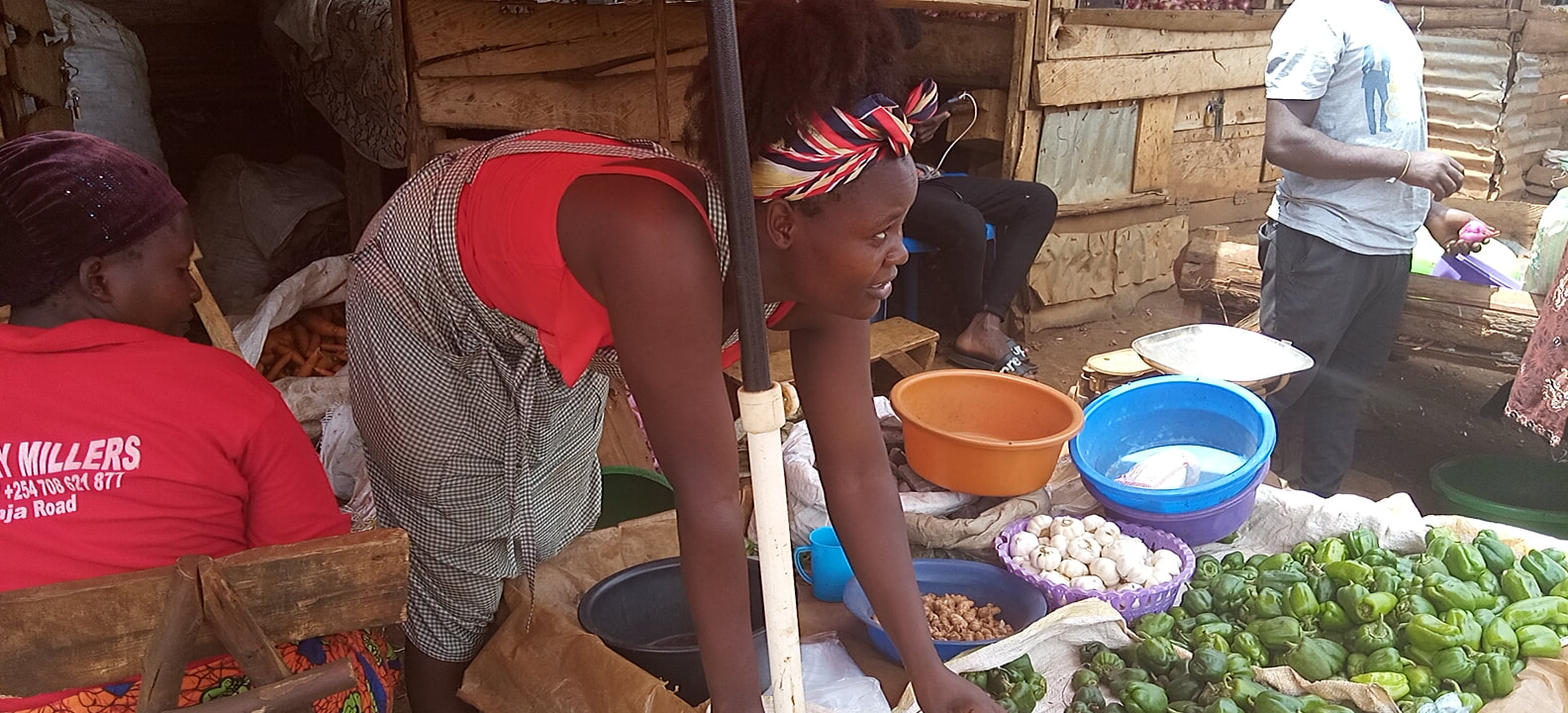
HOSANNA BIBLE-BASED SERVICES
The whole church must take the whole gospel to the whole world. But most Africans living in poverty and the pastor and church members spend most of their time trying to live each day.
We created Hosanna Bible-Based Services, not as an attempt to replace the Gospel, but as a way to help Christians climb out of the poverty bucket and bring others with them as they study Biblical principles to guide their daily transactions in their communities.
The Africa Bible Project is based on working to overcome these issues:
While these are not intractable problems, the potential for harvest in Africa is great. In 2010, Africa was estimated to have 390 million Christians and is expected to have 600 million in 2025. Already, 26% of the worlds Christians live in Africa versus 11% in North America.
The whole church must take the whole gospel to the whole world. But most Africans living in poverty and the pastor and church members spend most of their time trying to live each day.
We created Hosanna Bible-Based Services, not as an attempt to replace the Gospel, but as a way to help Christians climb out of the poverty bucket and bring others with them as they study Biblical principles to guide their daily transactions in their communities.
The Africa Bible Project is based on working to overcome these issues:
- People living in poverty have pressing needs of food, water, shelter and schooling. 87% of Ugandans for example live in poverty.
- Christians living in poverty look to their pastor to help in their time of trouble.
- Pastors living in impoverished areas among the rural poor, refugees and in urban, overcrowded poor areas:
- Often have not been trained to teach the Bible or be a shepherd of the flock.
- Are living in poverty themselves
- Struggle to cope with the overwhelming needs of the local church members (loss of their crops relied on for food; pay for child to get needed medical treatment, etc.)
- Often leave the ministry because of the overwhelming nature of the work.
- Most poor Christians do not own a personal Bible who can read making it difficult to mature in the Word.
- In these areas, children and youth are growing up in a very different world than their parents. Connected to a wider culture outside the family and the local rural village (via access to cheaper, faster transportation, mobile phones for internet and more goods and services), they are becoming more resistant to following in the footsteps of their parents both their beliefs and way of living and more questioning of their parents beliefs.
While these are not intractable problems, the potential for harvest in Africa is great. In 2010, Africa was estimated to have 390 million Christians and is expected to have 600 million in 2025. Already, 26% of the worlds Christians live in Africa versus 11% in North America.

